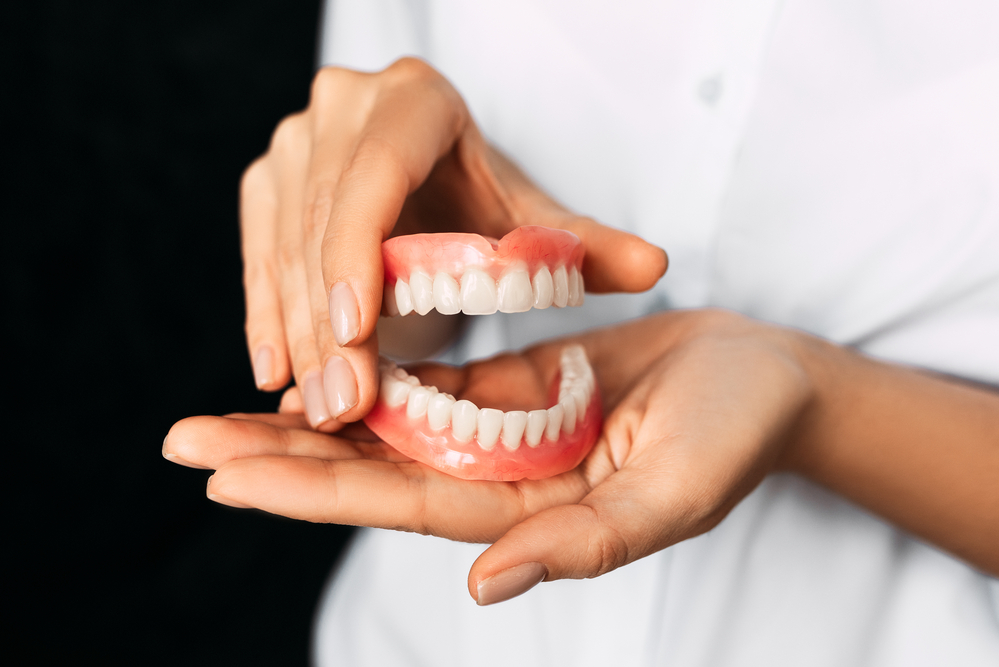Dental health plays a significant role in overall well-being, and the development of dental prosthetics like dentures has greatly improved the quality of life for many. These prosthetic devices restore aesthetics and aid in functions like chewing and speaking, enhancing oral hygiene and preventing further dental issues caused by missing teeth.
Understanding the basics of denture is essential for both patients and dental professionals. The introduction of dentures has provided a lifelike replacement for missing teeth, allowing individuals to regain confidence in their smiles and daily activities. Different types of dentures are available based on the extent of tooth loss, ranging from partial dentures that replace a few missing teeth to full dentures that restore an entire arch. The versatility of dental prosthetics like dentures highlights the importance of prosthodontics in modern dentistry, emphasising the need for personalised solutions to meet each patient’s unique needs.
Full Dentures
Full dentures, or complete dentures, are prosthetic devices designed to replace all teeth on the upper or lower jaw. These dentures are custom-made by a dentist to fit the individual’s oral cavity. Full dentures are typically made from acrylic resin, a durable and natural-looking material that mimics the appearance of teeth and gums.
The process of getting full dentures involves several steps. Firstly, the dentist takes dental impressions of the patient’s mouth to ensure a precise fit. This helps create either maxillary dentures for the upper jaw or mandibular dentures for the lower jaw. The dentist then works closely with the patient to choose the artificial teeth’ shape, size, and colour.
Once the full dentures are fabricated, the dentist ensures they fit comfortably and securely in the patient’s mouth. Proper care and regular dental check-ups are essential to maintain the longevity and functionality of full dentures. Overall, full dentures provide a practical solution for individuals who have lost all their natural teeth, enabling them to eat, speak, and smile confidently.
Partial Dentures
Partial dentures, also known as removable dental prosthetics, offer a practical solution for individuals who have lost some of their natural teeth, providing both functionality and aesthetics. These partial dental prosthetics come in various forms and are designed to meet each patient’s specific needs. When considering partial dentures, individuals may encounter the following key aspects:
When deciding on partial dentures, it is essential to consult with a dental professional to determine the most suitable materials and options based on individual needs. Those who have lost several teeth but still have some remaining may find partial dentures beneficial for restoring their smile and oral functionality.
Custom Dentures
Crafted to fit the unique contours of an individual’s mouth, custom dentures are meticulously designed for optimal comfort and functionality. Individuals can expect a personalised approach that considers their needs and preferences when opting for custom dentures. These dentures are typically created in a dental lab using impression moulds and precise bite registration to ensure a tailored, precision fit. Obtaining custom dentures involves multiple steps to guarantee that the final product meets the individual’s expectations.
One key advantage of custom dentures over standard options is the bespoke nature of the fit. Unlike one-size-fits-all solutions, custom dentures offer a truly individualised experience, considering jaw structure, bite alignment, and oral health. By investing in custom dentures, individuals can enjoy improved comfort, enhanced functionality, and a natural-looking smile that boosts confidence. The meticulous craftsmanship in creating custom dentures results in a superior product that meets the unique requirements of each wearer.
Implant-Supported Dentures
Implant-supported dentures, or overdentures, provide several benefits over traditional dentures. Here are three key advantages:
- Enhanced Stability: Dental implants, typically made of titanium screws, are surgically placed into the jawbone, where they undergo osseointegration, becoming a part of the bone structure. This integration ensures a secure foundation for the dentures, reducing slippage and improving overall stability.
- Improved Chewing Efficiency: Implant-supported dentures are stable, so they allow for better chewing efficiency than traditional dentures. This can enhance the overall eating experience, enabling individuals to enjoy a wider variety of foods without concern.
- Preservation of Bone Structure: Integrating dental implants helps preserve the jawbone structure by providing the necessary stimulation that prevents bone loss. This can contribute to better oral health in the long term.
In addition to these advantages, implant-supported dentures require specific care requirements to ensure longevity and effectiveness. Regular dental check-ups and proper cleaning routines are essential for maintaining oral health when utilising these prosthetics.
Snap-In Dentures
Snap-in dentures, also known as snap-on or clip-in dentures, offer a convenient and secure attachment system for individuals seeking an alternative to traditional dentures. These dentures utilize an anchor system consisting of locator attachments, providing a stable fit within the mouth. Ideal candidates for snap-in dentures may not be suitable for full dental implants but desire a more stable option than traditional removable dentures.
The mechanism of snap-in dentures involves placing implants in the jawbone during a dental consultation. The dentures can then be easily snapped onto these implants, giving the wearer confidence in their ability to speak and eat without worrying about slippage. This removable option, or overdentures, offers a comfortable and natural-looking solution for those missing multiple teeth.
Key Takeaways
When considering different types of dentures, selecting the right option ensures optimal oral health and patient satisfaction. Here are some key points to keep in mind regarding denture selection:
- Consult with a Dental Professional: Before choosing dentures, it is essential to consult with a dental professional who can provide personalised advice based on your oral health needs and lifestyle.
- Prioritise Oral Health: The quality of life and oral health of individuals using dentures greatly depend on choosing the most suitable type. Proper dental care and regular dental appointments are vital for maintaining oral health with dentures.
- Enhance Patient Satisfaction: Choosing the right dentures improves oral health and enhances patient satisfaction. Comfort, fit, and functionality significantly affect how satisfied individuals are with their dentures.
In need of expert guidance and personalised care for your denture needs? Look no further than Dr. Pierre Dentistry in Edgecliff, NSW. Take the first step towards enhancing your quality of life by scheduling a consultation with Dr Pierre Dentistry today!




